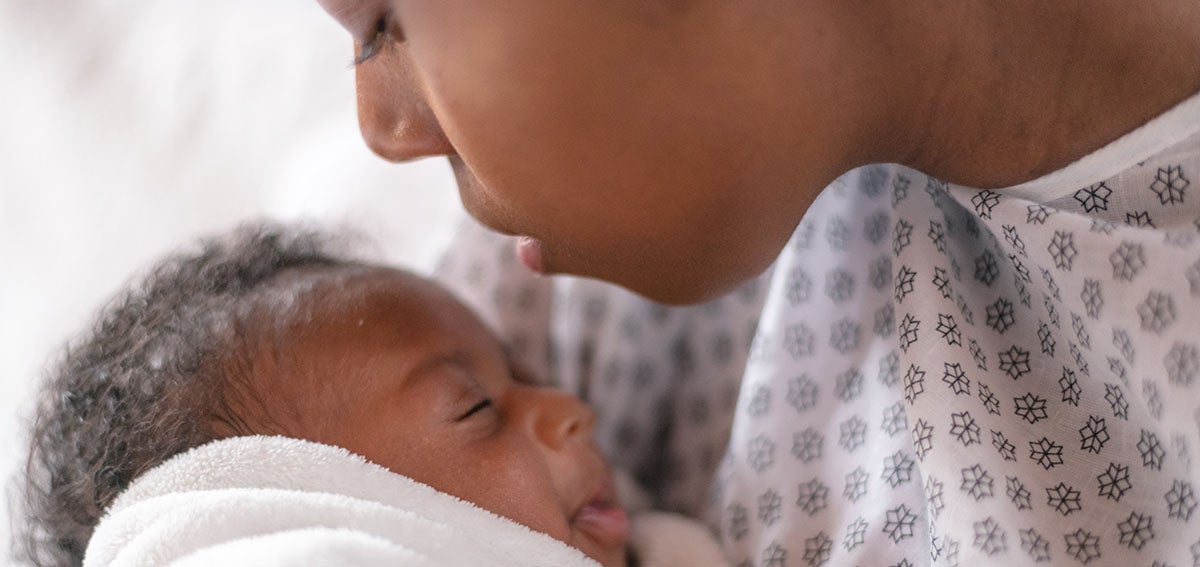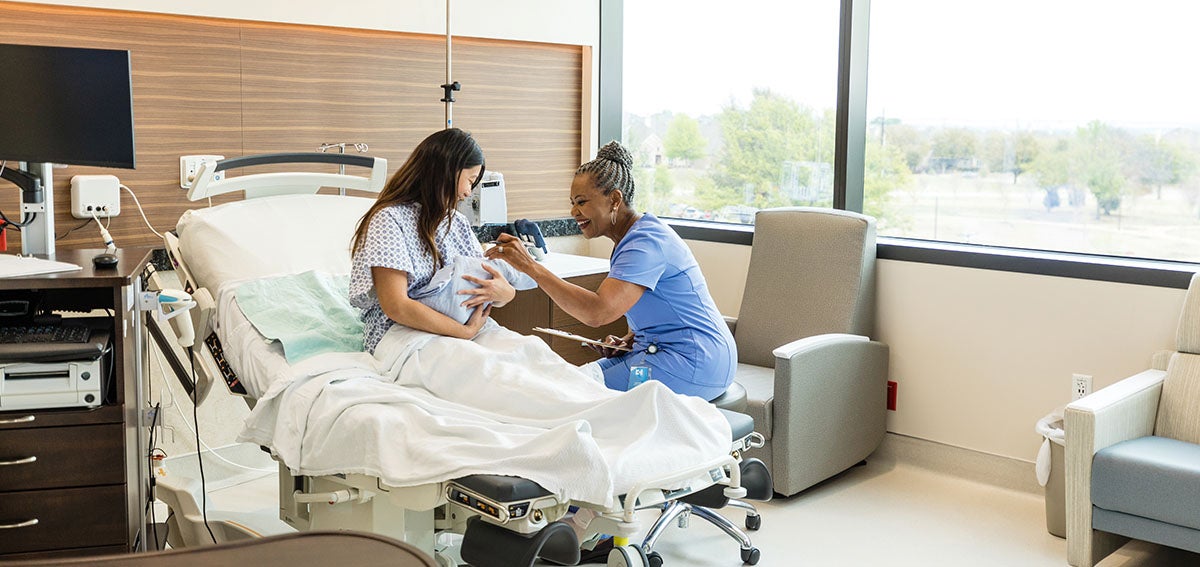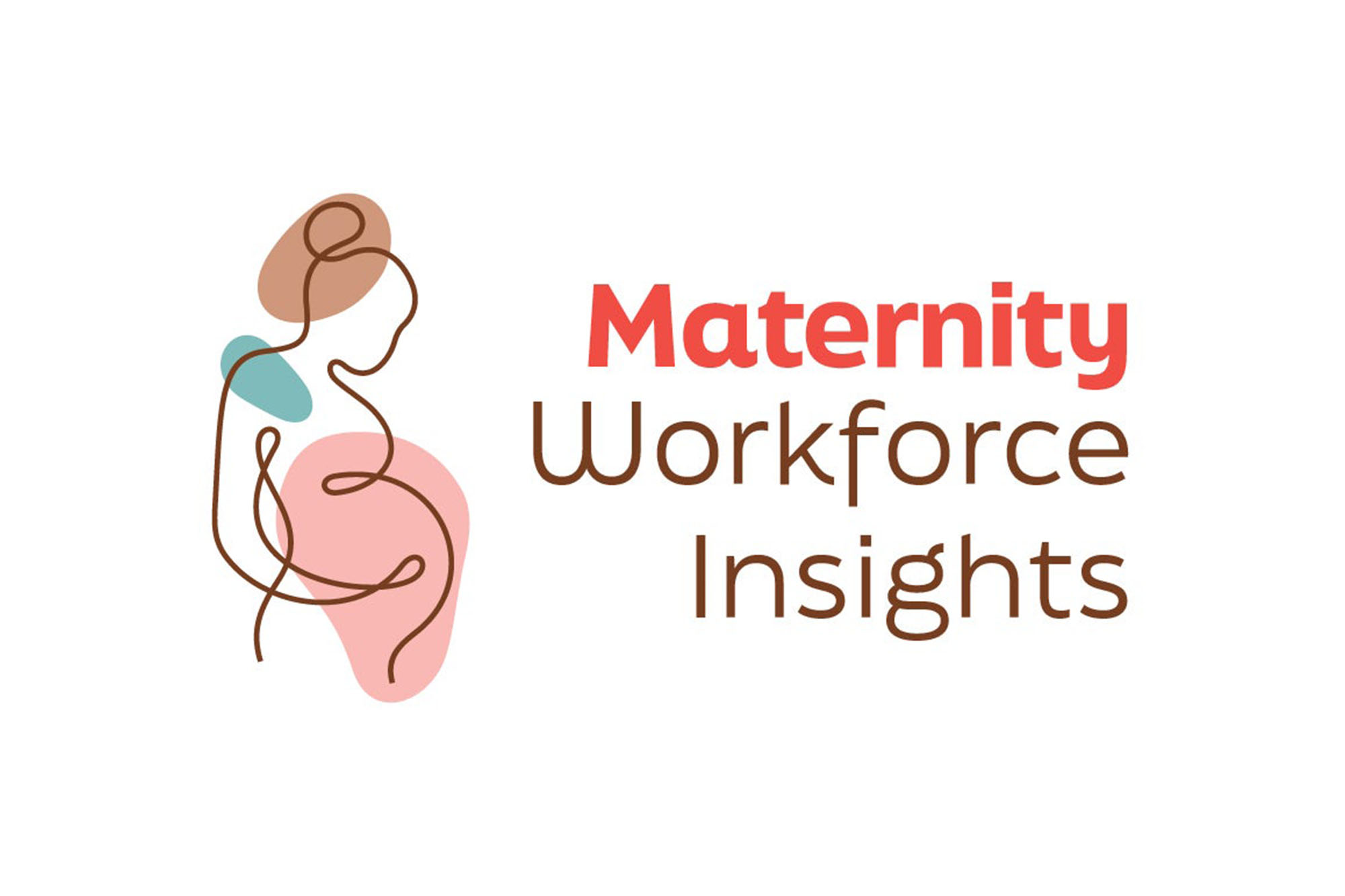

Latoyha Young had a birth plan. She was going to have the baby in Sacramento with community doula Joy Dean by her side. Dean was funded by the county’s Black Child Legacy Campaign, which works to reduce the disproportional number of Black infant and child deaths in Sacramento.
But in mid-March, when Young went into labor just as Governor Gavin Newsom ordered Californians to stay at home to avoid spreading the novel coronavirus, her plans went awry. Dean drove them to the hospital only to discover that new restrictions on visitors in labor and delivery rooms meant that Young would have to labor alone, Eileen Guo reported in the New York Times.
“I’m not worried about the virus,” Young told Guo. Instead, she was worried that without her doula by her side, the delivery room staff would not listen to her.
Young’s concern is not unique to the COVID-19 crisis. The Listening to Mothers in California survey, led by the National Partnership for Women and Families and funded by CHCF and the Yellow Chair Foundation, found that almost one-third of Black mothers (PDF) reported that they did not feel the delivery room staff encouraged them to make decisions about their birth progression. More than 10% of Black mothers reported that they were treated unfairly during their hospital stay because of their race or ethnicity.
Given the already unacceptable Black maternal mortality rate in the US, how can we double down on our support of Black mothers and birthing people* during a pandemic that is amplifying health disparities?
During Black Maternal Health Week, which is led by the Black Mamas Matter Alliance and held every April, California senator Kamala Harris wrote in Essence, “We must speak the truth about America’s history of health disparities that existed long before the coronavirus pandemic, including the grave ongoing crisis of Black maternal mortality.”
Difficult Choices in the Labor and Delivery Suite
Research shows that women who receive continuous labor support — whether through a nurse, midwife, or doula — are more likely to give birth without intervention or pain medications, be satisfied with their birth experience, and have babies with higher Apgar scores, which indicate the baby tolerated the birthing process better.
Unfortunately, COVID-19 has necessitated physical distancing, and hospitals from San Francisco to New York have banned visitors from labor and delivery to protect patients and staff. Some hospitals have implemented a one-visitor policy in birthing rooms, but that can create an impossible decision for women who must choose between a partner and a doula or midwife. To further complicate matters, the visitor restrictions “could change within hours of you getting to the hospital,” Erica Chidi Cohen, CEO of Loom, the Los Angeles sexual and reproductive health education center, told Sonja Sharp in the Los Angeles Times.
These abrupt changes to the birthing experience disproportionately harm some populations, including Black women and birthing people, “who are already vulnerable to disbelief and mistreatment by hospital staff — a situation that could potentially worsen without anyone there to advocate for them,” Monica McLemore, PhD, MPH, RN, associate professor at the UCSF School of Nursing, wrote on the Scientific American blog.
After all, “we have spent a lot of time convincing Black women their link to survival in the health care system is their doula,” Kathryn Hall-Trujillo, founder of Birthing Project USA, told Guo.
The Virtual Doula
Fortunately, some organizations, like Ancient Song Doula Services in Brooklyn, NY, have been able to quickly pivot to virtual services. Ancient Song, founded by Chanel Porchia-Albert in 2008, primarily serves pregnant people of color and has been working to provide its clients with reassurance and information about changes to birthing protocols. “We immediately switched over to be able to provide virtual doula services, offered to all of our clients,” Porchia-Albert told Nina Bahadur in Self. “Because some of our clients may not have access to smartphones, we work via phone, text message, Zoom, FaceTime, as well as WhatsApp.”
After receiving numerous requests from labor and delivery nurses who wanted to better support pregnant patients who could no longer have a doula with them, Porchia-Albert created a “crash” doula course for nurses. The virtual course has a human rights framework and teaches nurses how to elevate and honor communities of color, especially Black pregnant individuals, whose concerns about maternal mortality have been compounded by COVID-19.
To prevent maternal mental health from falling to the wayside during the pandemic, the Shades of Blue Project started an eight-week online support group for pregnant and postpartum individuals and a separate online support series for providers and community leaders. The Shades of Blue Project was founded by Licensed Community Health Worker Kat Matthews to help minority women suffering from postpartum depression and/or anxiety.
How Maternity Care Providers Are Responding to the Pandemic
COVID-19 will affect our health care system and the experiences of expectant parents for the foreseeable future, but there are many steps we can take to improve care for Black mothers and birthing people and their babies.
First, pregnant individuals should be prioritized for COVID-19 testing, Laurie Zephyrin, MD, vice president of health care delivery system reform at the Commonwealth Fund, wrote in Stat. Ramping up testing will give hospitals the information they need to take appropriate precautions during labor.
Both Zephyrin and McLemore emphasized the importance of increasing perinatal access to telehealth services, including doula care. Birthing people who do not have access to technology or the internet should be given an iPad and a data plan to facilitate telehealth, McLemore wrote. And because Medicaid pays for nearly half of all births in the US (Medi-Cal pays for half of California births), telehealth should be covered by Medicaid, Zephyrin advised. Because of the COVID-19 crisis, California has made emergency changes to increase Medi-Cal enrollees’ access to telehealth, including new coverage for phone visits and expanded coverage for video visits. It’s unclear, however, whether these changes will continue after the pandemic.
Medicaid coverage for pregnant women now lasts 60 days postpartum, but research suggests that extending postpartum coverage can benefit all women of color, who are burdened with maternal health disparities. Last year, California Senate Bill 104 authorized the state Department of Health Care Services (DHCS) to extend Medi-Cal coverage for 12 months from the last day of pregnancy for postpartum individuals diagnosed with a maternal mental health condition. This extension will take effect on July 1, 2020, according to a DHCS update (PDF).
SB 464 Takes Effect
In January 2020, California Senate Bill 464 took effect, requiring hospitals to train their maternity care staff about implicit bias. CHCF supports Diversity Science, a nonprofit that helps organizations become more inclusive, in developing free resources to help hospitals comply with the new law.
Because little is known about how the coronavirus affects pregnant women and their babies, research is needed to inform health care, policy, and personal decisions around labor and delivery. In late March, the UCSF Pregnancy Coronavirus Outcomes Registry began enrolling pregnant women across the country with confirmed or suspected COVID-19, Sarah Feldberg reported in the San Francisco Chronicle.
The registry “will track participants for a year to learn how the virus impacts maternal health, fetal development, preterm delivery, newborn health and outcomes for underserved women at higher risk of mortality during pregnancy,” Feldberg wrote. It will also investigate whether a mother can transmit the virus to her baby during pregnancy and birth or through breast milk.
Coronavirus notwithstanding, CHCF supports a portfolio of birth equity projects by, with, and for Black mothers and birthing people in California. The projects are focused on increasing transparency through better data, spurring delivery system interventions, and honoring the lived experience and voice of Black mothers and birthing people.
In the words of Senator Harris, “When we address both the systematic disparities and implicit bias in both our society and our health care system, we can get to the point where being Black and pregnant is full of joy and free from fear of preventable death.”
* * *
* We use the term “birthing people” to recognize that not all people who become pregnant and give birth identify as a woman or a mother.
How is COVID-19 affecting maternity care in your community? Tweet at me with #EssentialCoverage or email me.
Authors & Contributors





